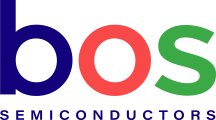|
[Viva 100] CEO Interview - Present and Future of Korean Fabless Industry
관리자 │ 2023-09-26 HIT 14964 |
|---|
|
"In reality, the fabless industry in Korea lacks competitiveness at the global level. Most domestic and international clients of Korean fabless companies are not mainstream players. Despite having world-leading foundries and value chain partners that could lead to a favorable environment for the fabless industry, its overall performance so far has been underachieving." This is the assessment of Jaehong Park, CEO of BOS Semiconductors, regarding the current state of the domestic fabless ecosystem. According to the Korea Fabless Industry Association, the number of fabless companies in Korea, which was previously known to be over 200, has now decreased to about 150. The weak foundation of the domestic fabless ecosystem as well as the overall semiconductor industry's primary focus on memory chips have resulted in a decline in the fabless industry. Park stated, "The system (non-memory) semiconductor market is much larger than the memory market. Korea also needs to develop its system semiconductor industry," and pointed out that "LX Semicon, the leading fabless company in Korea, actually sells most of its chips that are manufactured to LG Display. The domestic system IC market lacks diversity in terms of its customer base." He further mentioned, "We started BOS Semiconductors with the idea of creating a more competitive fabless industry," and stated, "Korea has a robust manufacturing-based ecosystem, and there are many potential customers. The environment is ripe for sustainable growth." BOS Semiconductors specializes in producing semiconductors for automotive applications, such as autonomous driving SoCs (System-on-Chips) and HPC (High-Performance Computing) SoCs. The company was established in May 2022 and attracted investments exceeding 100 billion Korean Won within its first year from investors including leading Korean automakers Hyundai and Kia. Park mentioned, "Software is crucial for future automobiles. However, to run software, we need semiconductors. There are favorable trends in the automotive industry that align well with BOS Semiconductors' vision and strengths, making us a strategic semiconductor partner for Hyundai." Typically, there are numerous semiconductors in various parts of a car, such as seats, air conditioning, audio, etc., to control each component. BOS Semiconductors aims to develop a "Super SoC" that integrates the various functions that semiconductors perform within a vehicle. Park explained, "The electrical and electronic systems within a car is currently quite fragmented," and he added, "Car companies are working on transforming this systems to become more efficient and this will require higher performance at the individual chip level. Eventually, we will see future vehicles equipped with a powerful 'Super SoC' at the center and input/output processors at the periphery, similar to what we see in PCs today." BOS Semiconductors has received attention due to its founders' experience in successfully commercializing large-scale semiconductor projects. Park previously worked at Samsung Electronics, where he successfully developed chipsets for DVD players and various chipsets for mobile AP such as 'Exynos' and automotive chips such as 'Exynos Auto.' Park also played a key role inside of Samsung Foundry. Having experience in the entire process from semiconductor design to fabrication is considered a significant advantage in the semiconductor industry. An industry insider mentioned that in a situation where domestic fabless companies currently have no experience in mass-producing their own chips, the chip production experience will serve as a significant advantage for BOS Semiconductors. The argument is that chip production experience is essential from the perspective of the "semiconductor industry" which requires being able to meet the customer's needs. The process requires ongoing coordination with the customer, as well as customer support, even after the product is manufactured. Park stated, "Creating good chips may be possible for new fabless companies in Korea, but successfully carrying out a semiconductor business is an entirely different challenge," and he emphasized, "It is not enough to have a good idea or good IP to enter the semiconductor business." He also emphasized, "To develop semiconductors, produce them, go out in the market, face failures, and receive criticism from customers are the steps necessary to polish and produce semiconductor products that are successfully adopted by the market." BOS Semiconductors' goal is to become a fabless company that can compete at the global stage. Its aim is to grow step by step and, in 20 years, stand alongside fabless giants like MediaTek from Taiwan and Qualcomm from the United States. Park stated, "Companies like MediaTek and Qualcomm took 30 years to reach their current levels," and he added, "It may be impossible to reach that level overnight, but at least within 20 years, I think we can become a company that can compete with them." He also mentioned, "Since the domestic fabless industry is not well developed, there are those who are watching startups like BOS Semiconductors with a mix of expectations and doubts. We ask for a lot of investment and support from those who are keeping an eye on us." Park is a semiconductor expert who has experience leading the mobile and automotive semiconductor businesses at Samsung Electronics. During his time at Samsung Electronics, he successfully developed custom AP SoCs for Apple's first iPhone, as well as managed various system semiconductor projects, such as Exynos mobile SoCs and the establishment of the Exynos Auto ecosystem. He also served as the head of the automotive semiconductor business team at Samsung Electronics, overseeing the Exynos Auto business for global OEMs such as Audi and BMW, which led to him receiving the 2021 Science and Technology Medal for Innovation. |
| previous post | Economist Interview - Meet the Semiconductor IC Guru: Jaehong Park |
|---|---|
| next post | BOS and Tenstorrent Partner to Develop Automotive Semiconductor |








